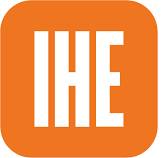
Higher Ed Drive
January 29, 2026 Admissions, Student Success, Value and Affordability
Policy changes across the higher education landscape are expected to continue this year, affecting operations and students. Institutions will be under intensified accreditation pressure from the federal government, potentially reshaping accreditation regulations. Ongoing Title IV investigations by the administration continue to expand. Over 2,600 federal research grants are cancelled or suspended, though funding priorities of the administration have begun to emerge. Additionally, in-state tuition rates for undocumented students have ended via executive order.

Higher Ed Drive
November 13, 2025 Admissions, Enrollment Management Trends
The reporting requirements of four-year colleges practicing selective admissions are expected to expand in accordance with the U.S. Department of Education. This proposal would require institutions to submit the last six years of admission data. When submitting this data, information such as race, sex, as well as parental education level and GPA must be omitted. This rule is set forth to address institutional admission trends following race-based admissions under the guidance of the Supreme Court’s 2023 race-conscious practice prohibition. This new requirement raises concern on the privacy and potential misuse of student data under the current administration.

Higher Ed Drive
November 11, 2025 Admissions, Enrollment Management Trends
Undergraduate enrollment has been projected to grow by 2.4% in Fall 2026, the third consecutive year of enrollment growth. This growth is highly contributed to community college and trade school enrollment. Furthermore, an increase in short term certification and associate degree enrollment has been observed. Limited notable enrollment changes have been projected for bachelor and graduate degree-seeking students.

Higher Ed Drive
October 23, 2025 Pre-College Outreach, Admissions
Although SAT and ACT score averages for the class of 2025 prove to be an improvement from the previous year, scores still remain below pre-pandemic levels. This year, SAT scores for reading and writing averaged at 521, while math averaged at a score of 508. These scores are lower than the 2019 average scores of 531 and 528, respectively. Furthermore, this year, only about 30% of students who took the ACT met 3 or more of the established college readiness benchmarks. These exams continue to see a decrease in the number of test-takers, which is highly credited to the test-optional approach established by institutions during the pandemic, with nearly 90% of U.S. higher education institutions remaining test-optional for admission.

Inside Higher Ed
October 07, 2025 Admissions
In August 2025, international student arrivals to the U.S. dropped by 19% compared to the previous year, largely due to visa delays, paused interviews, and policy challenges. The decline was especially sharp among students from Africa, Asia, and the Middle East, with countries like Iran, Ghana, and India seeing dramatic reductions. While official government data (SEVIS) shows a slight increase in international student enrollment, experts argue this figure is likely misleading or incomplete. Many students, particularly from India, were forced to defer their studies after being unable to secure visa appointments in time. This trend raises serious concerns for U.S. universities, which depend heavily on international students for tuition revenue and global engagement.

HigherEd Dive
September 23, 2025 Admissions, Research
At the NACAC Conference, researchers presented findings regarding diversity in college admissions. Data from 17 universities showed that while Black and Hispanic students are applying in growing numbers, their admit rates are not reflective of this. The study found that colleges overwhelmingly prioritize academic factors like GPA and curriculum strength over essays or personal attributes, countering myths that race alone drives admission. Researchers warned that demographic changes and opaque institutional priorities complicate public perceptions of fairness in admissions.

Inside HigherEd
September 10, 2025 Admissions, Enrollment Management Trends, Student Success
Despite anticipated enrollment challenges, many colleges and universities throughout the United States are celebrating record-breaking enrollment this fall. Driven by initiatives such as dual enrollment, a growing interest in health sciences, and access to online education, institutions across the nation are witnessing the impact of their investments in strategic enrollment initiatives. Institutions like the University of Minnesota Rochester are highlighted in their successful prioritization of initiatives aimed at enrolling and retaining their students beyond the first year. These results underscore the importance of institutions adapting to meet the needs, demographics, and expectations of the incoming generation of students.

Inside Higher Ed.
September 08, 2025 Admissions, Enrollment Management Trends
High school student dual enrollment —education programs where high school students participate in college-level courses for credit — has skyrocketed throughout the last decade. Increased enrollment has prompted researchers to analyze the impact of participating students on their post-secondary collegiate enrollment, transition, and success. A study of nearly 500,000 students by the Community College Research Center at Columbia University’s Teachers College found that not only were dual-enrolled students applying to college admitted at higher rates, but these students were also more likely to obtain merit financial aid. With nearly half of all public high schoolers enrolled in college courses, future research aims to determine how dual enrollment boosts students’ confidence and enrollment participation.

US Department of Education
March 01, 2025 Admissions, Enrollment Management Trends
The U.S. Department of Education recently released a FAQ resource regarding the Dear Colleague Letter sent February 14.

HIGHER ED DIVE
January 27, 2025 Pre-College Outreach, Admissions, Enrollment Management Trends
The Western Interstate Commission for Higher Education (WICHE) recently predicted high school graduates will peak between 3.8 million and 3.9 million. After 2025, the population is expected to decline in 2030 to 3.1% lower than 2023 levels and 10.5% lower in 2041. The estimated decline in graduates is largely determined by birth rate, how quickly students’ progress through high school and earn diplomas, migration and mortality patterns, and the college-going rate. Specifically, 38 states are expected to experience declines while 12 states and Washington, D.C., will actually see increases. Overall, the decline in high school graduation rates will cause national workforce challenges and shift the ethnic and racial makeup of high school graduates. Proactive solutions to manage the expected decline include improving the immediate college-going rate of high school graduates and the progression and retention of students who do enter college.